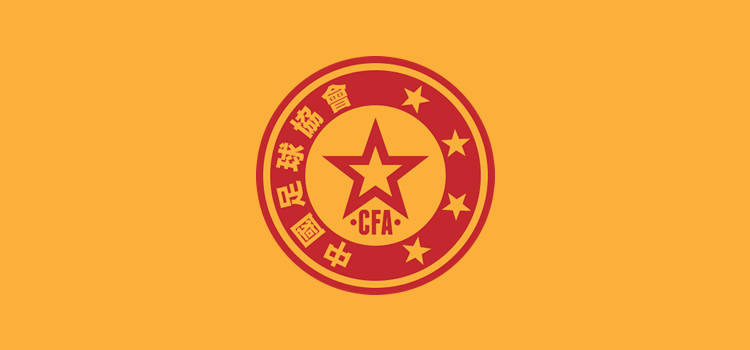Chinese football never escapes the headlines for one reason or the other.
Usually, the eyes of the world are drawn to a mesmerisingly expensive transfer, a failure for an international player to adapt to the different lifestyle or the reaction of Chinese fans to the state of their national team.
What we were not expecting to hear is that the attention on this occasion was centred over a row between freedom of expression over Tibetan flags, leading to the suspension of a Chinese U20 tour.
The team were playing in Mainz, Germany, in anticipation that the friendlies in Europe would provide them with the opportunity to build their footballing knowledge and ability ahead of the 2020 Olympics in Japan.
The TSV Schott Mainz match was the first of 16 friendlies the young side were meant to play against lower clubs in Germany, until next May, and while the following game against FSV Frankfurt was scheduled to go ahead it was eventually cancelled after the Chinese U20 side learnt of plans for a new Tibetan protest.
All of the games were due to be televised to be broadcast live in China, so the fact that six spectators unfurled Tibetan flags created an unsustainable situation, with the team only agreeing to play on once the flags had been taken down.
In Germany, no censorship and freedom of expression may be limited by law, but due to the history between China and Tibet, emotions ran high, with Chinese authorities calling for their hosts to show “mutual respect”.
Unsurprisingly the German football association defended the ability to protest in the country, with President Reinhard Grindel saying: “We cannot ban the protests, there is the right to freedom of expression here and certain rules apply. However, we also want to be good hosts and as a result, we are not happy with this incident.”
Chinese foreign ministry spokesman Lu Kang said earlier this week Beijing was “firmly opposed to any country or any individual offering support to separatist, anti-China and terrorist activities or activities defending Tibet independence, in any form or under any pretext”.
“I must stress that mutual respect is what the official host should provide their guest, and that respect between any two countries should be mutual,” he added.
The slightly surreal experience reignites the feud between China and Tibet.
China has ruled Tibet since the 1950s, and has been accused of trying to eradicate its Buddhist-based culture through political and religious repression.
Beijing insists that Tibetans enjoy extensive freedoms and that it has brought economic growth to the region.
In 1959, after a failed anti-Chinese uprising, the 14th Dalai Lama fled Tibet and set up a government in exile in India.
Most of Tibet’s monasteries were destroyed in the 1960s and 1970s during China’s Cultural Revolution.
Thousands of Tibetans are believed to have been killed during periods of repression and martial law.
In 2011 two monks set themselves alight in protest against Beijing, while three years prior monks also marched from monasteries in and around the city of Lhasa to mark the 49th anniversary of a Tibetan uprising against Chinese rule.
What is different now is that sport is being used as a platform for the protests. It’s a trend that’s not disappearing.
In the last few months, NFL players have taken the knee at the sound of the US national anthem in protest of President Trump’s outburst against these professional athletes, with racial tensions evident across the country.
The same can go for football ownership in the UK. The state of affairs of Blackpool, Coventry and Charlton Athletic, to name a few, has created a situation where fan protests on the pitch became the norm, whether that be a pitch invasion or chucking tennis balls onto the turf.
Perhaps the most famous example of all of this was Mohammad Ali’s refusal to be inducted as a soldier in the Vietnam conflict, forgoing military service due to his religious faith.
Ali was convicted of draft evasion, sentenced to five years in prison, fined $10,000 and banned from boxing for three years. He stayed out of prison as his case was appealed, and subsequently returned to the ring in 1970.
Perhaps it’s not surprising that protestors took to a televised game to make their point, in a country whose identity is founded on the principle of freedom of expression.
The probability is that this will continue into the future and it could shape the image of Chinese football.
